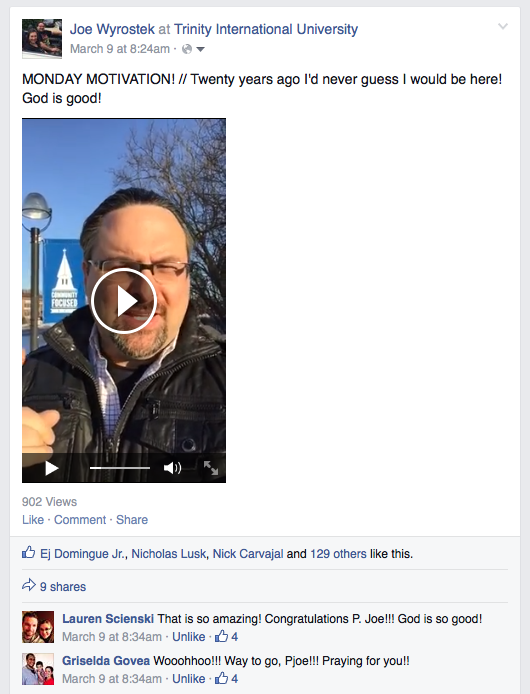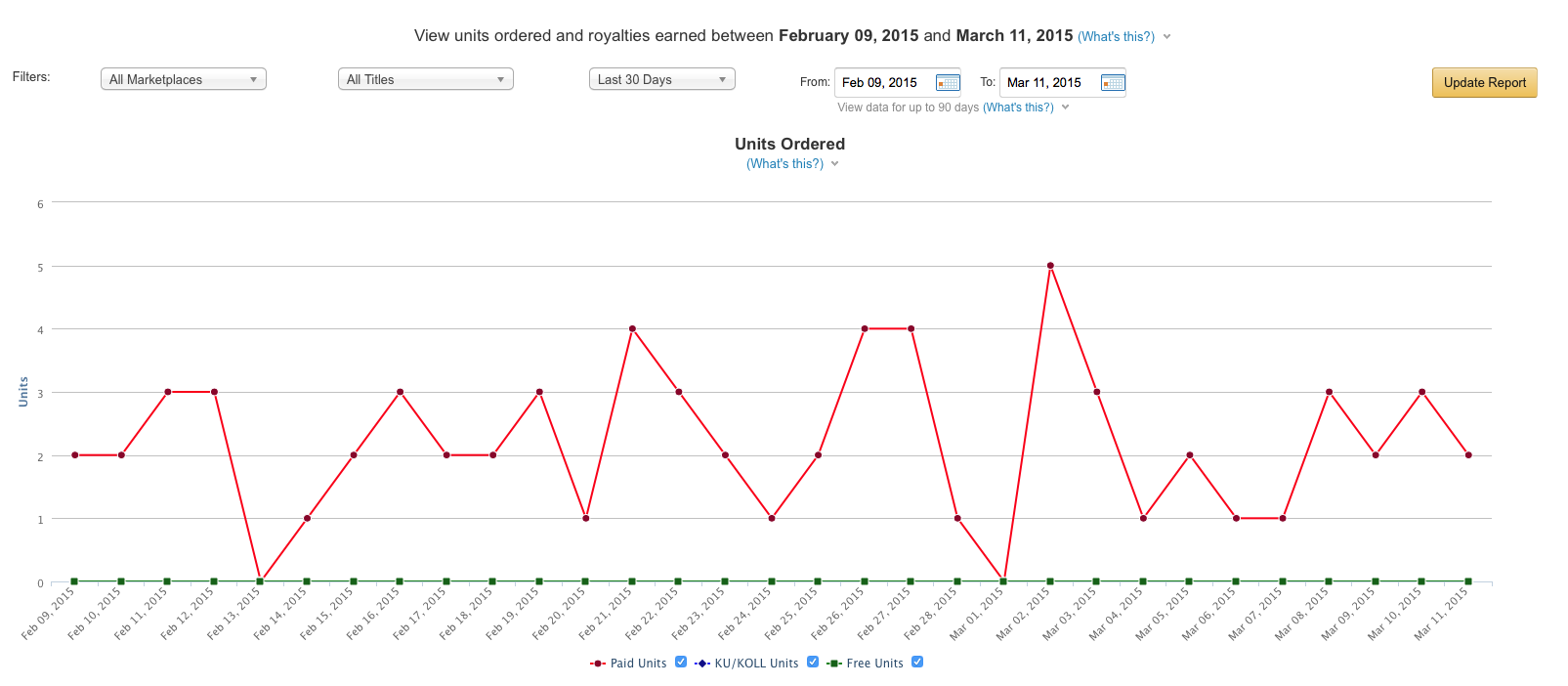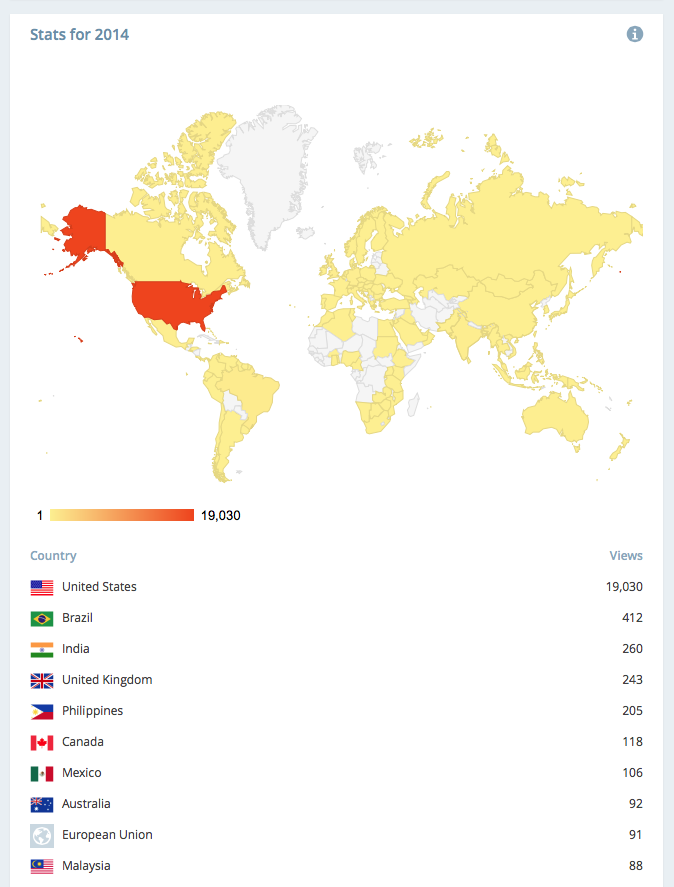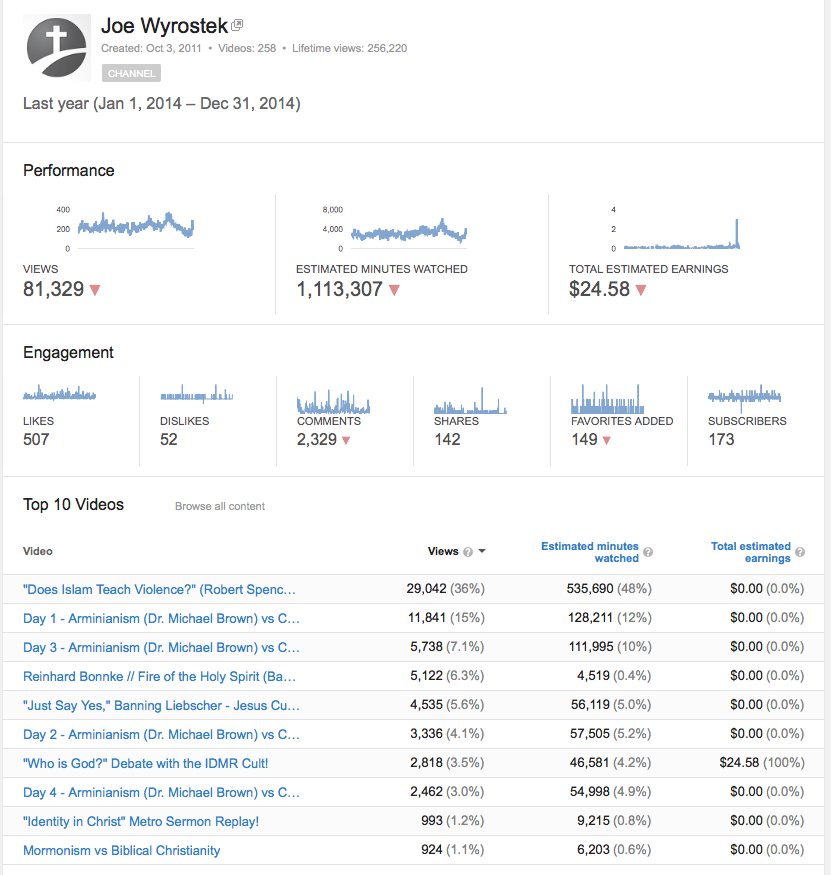Social Media and the Church
Note: This was a sermon preached in the class, “Preaching & Culture,” in the doctoral program aimed towards “church leaders” regarding “church and technology.”
Like many young pastors I joyfully jumped head first into the social media revolution in the early 2000’s. I was a first hand witness to the explosion of social communities like “MySpace,” hosted weekly live webcast shows from “StickCam,” and uploaded short videos on “Youtube.” Plus, I quickly learned how to build our own church website and successfully incorporate such things as, “online marketing” and “live service webcasting” well before it became mainstream.
However, now after all these years I am beginning to have my concerns about where things are headed. I have noticed a selfishness (that was always in man’s hearts) but now is being given new opportunities to thrive instead of being counted dead with Christ. Therefore, it with this intent of giving a warning concerning social media, along with biblical tips for the church, that I present this sermon.
Sermon Text
Ephesians 5:15-17, “15 Be very careful, then, how you live —not as unwise but as wise, 16 making the most of every opportunity, because the days are evil. 17 Therefore do not be foolish, but understand what the Lord’s will is.”
Recent Personal Stats From Social Media
1. Started Trinity this week with over 900 views and 9 shares from a 38 second video about God’s faithfulness.
2. In the last 30 days, “Discipleship Based Churches,” has sold over 70 copies through Kindle for $.99.
3. In the last 6 months of 2014, (July-Dec), our church website had 21,733 views with over 7000 unique visitors, from close to 100 nations!
4. In 2014 our youtube videos had 81,329 views with an estimated 1,113,307 minutes of viewing time (there are only 525,949 minutes in a year).
Terms
- Social Media: Forms of electronic communication (as Web sites for social networking and microblogging) through which users create online communities to share information, ideas, personal messages, and other content (as videos). Examples include: Facebook, Twitter, Youtube, etc.
- The Church: The called out disciples who form the Body of Christ.
- Method: A procedure, technique, or way of doing something.
Questions to be Asked
- Is the church using social media to change the world for the better or is social media changing the church for the worse?
- How can the church know the difference between good and bad methods within social media?
Question ONE: Is the church using social media to change the world for the better or is social media changing the church for the worse?
Here are some basic questions we should ask to find our answer:
- In what ways are we better fulfilling the Great Commission by using social media?
- Possible answers:
- Information such as, “gospel tracts,” “discipleship materials,” and “sermons/leadership training videos” are available 24/7 for free.
- Church networking between denominations and fellowships are being shared with lightening speed across borders making organizing our gospel efforts much easier.
- Possible answers:
- In what ways has social media hindered the church in the Great Commission?
- Possible answers:
- Some churches that use video feeds for the preaching have given a double standard to their people because most of the same churches would not accept their members remaining at home and only appearing on screen for the worship service.
- Social media can easily feed the pride, selfishness, and narcism of shallow pastors by making them appear to be larger than life on the small screen with tons of fans and followers on places like Facebook, however, their personal life may contain sins which Paul stated would disqualify him or her from being a leader.
- Possible answers:
Gained Insight: Social media in the church is “grey” and “neutral,” therefore, the application(s) determines the outcome being “positive” or “negative.”
- Depending on how the church uses the social media can determine the answer to our question.
- In summary, if a church uses social media to further the gospel by networking and sharing information the method is acceptable.
- However, if the church’s method with social media results in hypocrisy or man-centeredness it should be rejected.
- Simply said, “In matters of style, swim with the current; in matters of principles, stand like a rock,” Thomas Jefferson.
Question TWO: How Can the Church Know the Difference Between Good and Bad Methods Within Social Media?
We should answer the following questions to help discern our hearts and intentions:
- Would we do the same thing without social media, as we do with it?
- Example 1: If I didn’t have Facebook, would I still pray for those in my church that have prayer requests. If the answer is, “yes,” then accepting prayer requests is a good method the church can utilize in social media.
- Example 2: If I didn’t have Facebook would I argue publicly with someone in the church about personal matters. If the answer is, “no,” then it is not a good method for leaders to argue personally with people on Facebook.
- Does the social setting change the church’s convictions for the worse?
- Example 1: Does our church’s leadership have a conviction to respond to people in 24hrs by the same manner they have reached out to us in, such as, “phone, email, etc.”? If the answer is, “yes,” then we must find a way to respond to people’s needs and questions on Facebook within 24hrs, otherwise the social setting has changed our personal convictions for the worse.
- Example 2: Does the church have a conviction that people coming to church is important for community? If the answer is, “yes,” then the leadership cannot miss church and only use technology because that would be compromising our own standard.
- Does the church appear in social media as it actually is or does it pretend to be something it’s not?
- Example 1: Does the church address “hot topics” in Bible studies and sermons, such as, “homosexuality, abortion, etc.”? If the answer is, “yes,” than the church should publicize these kinds of things on social media, otherwise the church is being dishonest in its identity.
- Example 2: Does the pastor rightfully discharge his duties with the Word of God- correcting, rebuking, encouraging, and training in righteousness? If the answer is, “yes,” than his feeds should not only be encouraging posts lest he be guilty of fearing man and not God.
Gained Insight: A good social media method honors God in clear ways and thus social media methods that result in “commandment breaking,” should be avoided.
- Therefore, we shouldn’t lose the values and methods that make the church effective in fulfilling the Great Commission.
- Rather we should find creative and effective ways to implement the church’s God-given methods into the social media world.
It’s Our Turn
- The first disciples used parchment, scribes, market places, charity, and Roman roads.
- The medieval church used monasteries, missions, and universities.
- The Reformers used the printing press, political freedom, and international travel.
- The Methodists used horse back, song writing, discipleship groups, and American colonization.
- Likewise, it’s the 21st century church’s duty to use social media, along with technology, for the glory of God!
Use every opportunity you can in social media for God’s glory, but remember, social media is not the master of the church, the church is the master of social media!




